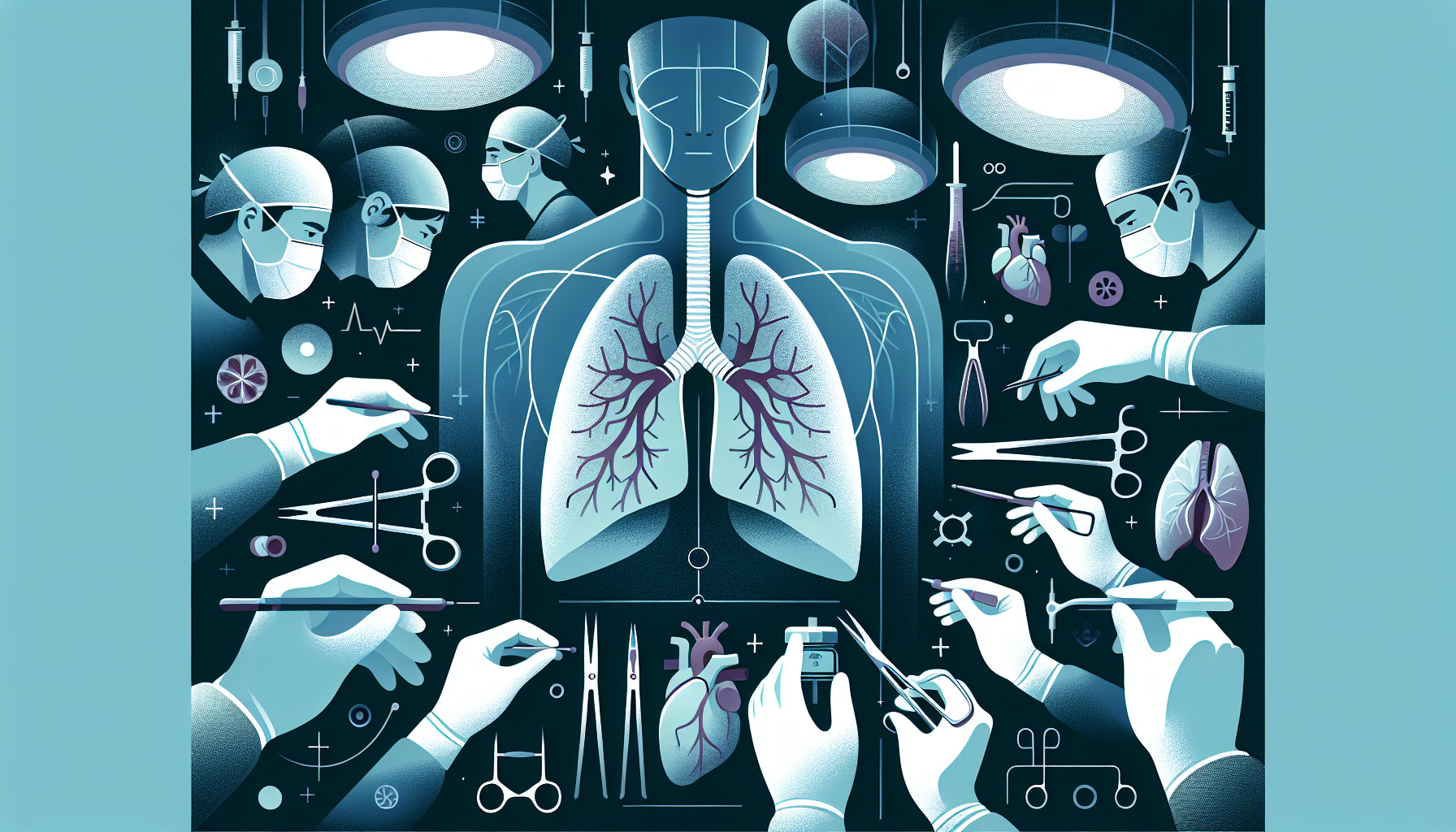Our Summary
This research paper is about how infections caused by bacteria that are resistant to many drugs (known as multidrug-resistant or MDR bacteria) affect people who have had lung transplants. Recent studies have shown that if the lung donor had MDR bacteria, it doesn’t seem to make the outcome any worse for the person receiving the lung. Also, patients with a disease called cystic fibrosis who have these MDR bacteria don’t seem to die more often within a year than those without the bacteria.
FAQs
- What is the focus of the research paper on lung transplants?
- Does the presence of multidrug-resistant bacteria in the lung donor affect the outcome of the transplant recipient?
- Does having multidrug-resistant bacteria in patients with cystic fibrosis affect their survival rate post lung transplant?
Doctor’s Tip
One helpful tip a doctor might tell a patient about lung transplant is to strictly follow the prescribed medication regimen to prevent infections and rejection of the new lung. It is important to take all medications as directed, attend all follow-up appointments, and report any signs of infection or rejection promptly to the medical team. Additionally, practicing good hygiene, avoiding crowded places, and getting recommended vaccinations can help protect the new lung and overall health.
Suitable For
Patients who are typically recommended for a lung transplant are those with end-stage lung disease, such as cystic fibrosis, chronic obstructive pulmonary disease (COPD), idiopathic pulmonary fibrosis, and pulmonary hypertension. These patients have severe respiratory symptoms and a poor prognosis, despite optimal medical management.
In the case of cystic fibrosis patients, lung transplantation is often considered when lung function deteriorates significantly and quality of life is severely impaired. Cystic fibrosis patients may also develop MDR bacteria infections due to frequent antibiotic use and recurrent lung infections.
It is important to note that each patient is evaluated on a case-by-case basis by a multidisciplinary team, including pulmonologists, transplant surgeons, infectious disease specialists, and social workers. The decision to proceed with a lung transplant takes into account the patient’s overall health, lung function, comorbidities, and potential risks and benefits of the procedure.
In conclusion, patients with end-stage lung disease, including those with cystic fibrosis and MDR bacteria infections, may be recommended for a lung transplant to improve their quality of life and overall prognosis. The presence of MDR bacteria in the lung donor or recipient does not appear to significantly impact transplant outcomes, based on recent research findings.
Timeline
Before lung transplant:
- Patient undergoes extensive medical evaluations to determine if they are a suitable candidate for a lung transplant
- Patient is placed on a waiting list for a compatible donor lung
- Patient may experience worsening symptoms of their lung disease and require frequent hospitalizations
- Patient may need to undergo breathing exercises, physical therapy, and other treatments to maintain lung function while waiting for a transplant
After lung transplant:
- Patient undergoes surgery to receive the new lung(s)
- Patient is closely monitored in the intensive care unit for several days post-surgery
- Patient may experience complications such as rejection of the new lung, infection, or organ failure
- Patient must take immunosuppressant medications for the rest of their life to prevent rejection of the new lung
- Patient undergoes regular follow-up appointments and monitoring to ensure the success of the transplant
- Patient may experience improvements in lung function and quality of life, but may still face challenges such as infections and side effects of medications
Overall, the process of receiving a lung transplant is complex and requires ongoing care and management to ensure the best possible outcome for the patient.
What to Ask Your Doctor
What is the likelihood of developing infections caused by MDR bacteria after a lung transplant?
How are infections caused by MDR bacteria typically treated in lung transplant patients?
Are there any specific precautions or preventative measures that should be taken to reduce the risk of MDR bacterial infections post-transplant?
How often will I be monitored for MDR bacterial infections following the transplant?
What are the potential complications or risks associated with MDR bacterial infections in lung transplant patients?
How does the presence of MDR bacteria in the lung donor impact the success and outcome of the transplant?
Are there any specific tests or screenings that can be done to detect MDR bacteria in the donor lung before the transplant?
What can be done to minimize the risk of transmission of MDR bacteria from the donor to the recipient during the transplant procedure?
How does having cystic fibrosis, a condition known to be associated with MDR bacterial infections, impact the risk and management of infections post-lung transplant?
What steps can be taken to optimize the immune system and overall health in order to prevent and combat MDR bacterial infections after a lung transplant?
Reference
Authors: Dominguez F, Blodget E. Journal: Curr Opin Organ Transplant. 2020 Aug;25(4):348-350. doi: 10.1097/MOT.0000000000000782. PMID: 32618718
